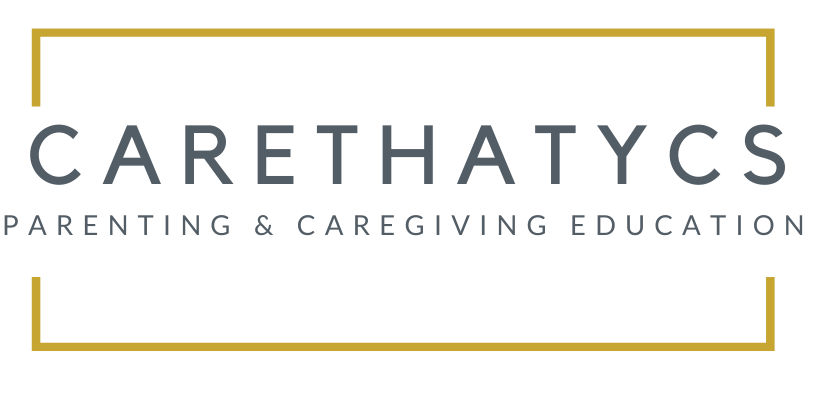If parents were already concerned with the quality of education they offer their children, as well as greater safety and comfort, with more knowledge of how the early years are crucial for optimal brain development and the new 21st century skills even in the job market, more and more, we are trying to educate children to be emotionally healthy. Now, with the coronavirus pandemic and the closure of schools, and remote learning, many parents feel overwhelmed. Children stay at home all day, but there are school duties that need support from an adult to be done successfully, or simply to facilitate and make sure the children stay focused and on track. While parents are working from home, in addition to not being able to cope with this new role they have been assigned, they may also need silence and order to fulfill their work commitments and those video calls.
Why do we need training?
All these new challenges are making many parents look for more educated and high-qualified nannies, who have training, experience, and, of course, a great track record of impeccable references. We have known for a long time that raising children is not as intuitive as society once preached, that there are, in fact, methods that help us to raise kinder, mindful, smarter, joyful, and better-prepared adults.
Therefore, parents are increasingly demanding and updated with regard to parental education and which professionals will hire to be part of this very important role in the lives of families. It has been increasingly common for parents looking for nannies who can speak a second language, who have qualifications, who have higher education or some course on child development and education. In addition, it is necessary to teach social skills, such as empathy, collaboration, good manners (etiquette), being able to communicate well, building healthy habits in relation to food and hygiene.
Advantages of continuing education
There are countless advantages to being a well-trained professional, because, in addition to having a higher remuneration, practically twice as much as an unqualified professional, many have the option to choose the employer – just as they interview us, we also have the opportunity to interview them, as we are highly sought after and often have more than one job offer to choose from.
Some positions have a really great remuneration – and not because they require you to work around the clock. This not only brings economic benefits but in your life in general, you can optimize your time. You can work less for a higher amount, improving your quality of life – which has been my choice for the past 5 years.
In addition to being able to remain as a more competitive professional in the market, since the greatest demand, today is for high-qualified professionals, you can also become a professional reference in your area and your field. Highly-skilled nannies make parents more confident about the quality of work to be performed. Therefore, having a nanny exceeds the quality of care and education that is offered in a childcare center – the child can still stay safely at home, receiving undivided attention from a high-qualified, experient professional. This is the main reason for hiring a professional nanny.
The Nanny´s Attributes
The nanny’s daily life as a professional is totally focused on the education and care for the family’s children. It is necessary, then, to be aware of all aspects involving child development and education, such as basic needs, health, and well-being, sleep and safety, recreation, motor development, speech, and language, etc.
It is important that the nanny has a wide knowledge of different methods, as we know that each family has its uniqueness, and children will adapt to a type of routine that has more to do with the family’s values and lifestyle.
Having, at the very least, some knowledge in learning philosophies, child development, and psychology, pedagogy, CPR & First Aid – a must -, sleep and child nutrition are recommended to acquire to be considered a high-qualified nanny, in addition to courses from the industry itself.
All activities that are delegated to the nanny must be outlined in their work agreement. For example, if the nanny needs to clean up the nursery and playroom, if she has to bathe, make the child’s food, and wash the children’s clothes, among other activities related to the child.
It is important to emphasize that as a nanny, the main concern of the professional has to be with the well-being and engagement of the child and not with domestic tasks. The activities mentioned above are to be done when the nanny is not busy looking after the child, when the child naps, for example.
The Nanny’s Role as an Educator
Since we were born we have built habits that permeate our lives in the future; they are habits that can remain indefinitely and generate consequences, which can be good or bad – it will depend on what habits we adopt in our daily lives. Precisely, in order that children can grow healthier and well-adjusted adults, it is important to build good habits since birth. Having a regulated sleep, healthy eating, good personal hygiene, and balanced emotional well-being is what every parent wants for their child. Therefore, the role of the nanny educator is fundamental, as these life skills are established in the first years of life, even before the child starts going to school.
The whole time we spend with a child is a time when we are teaching something. Even if they are only experiencing or witnessing a situation, they will learn something from the situation they experienced and will even tend to repeat it. Children learn fast, they are very observant, and it is imperative that the nanny has good manners, demeanor, and composure to be a child’s role model.
Although many people associate a nanny educator with one who will teach kids their school subjects, that is not the case. In fact, the nanny is an educator, precisely because she knows all the methodologies regarding child development. The teachings and learnings will take place in every interaction while the nanny is caring for the child no matter the age, how they go about their day, in the way they approach challenges. It is the knowledge of life, the curiosity they will develop, and joy to learn, the ways in which you will interact with people, the emotional regulation, the behavior in the face of something they can’t have, etc. Obviously, the nanny educator may have the knowledge to help and facilitate school tasks, but, mainly, the nanny educator, educates for life! The nanny stimulates and molds the child, preparing them better, too, to receive academic knowledge.

